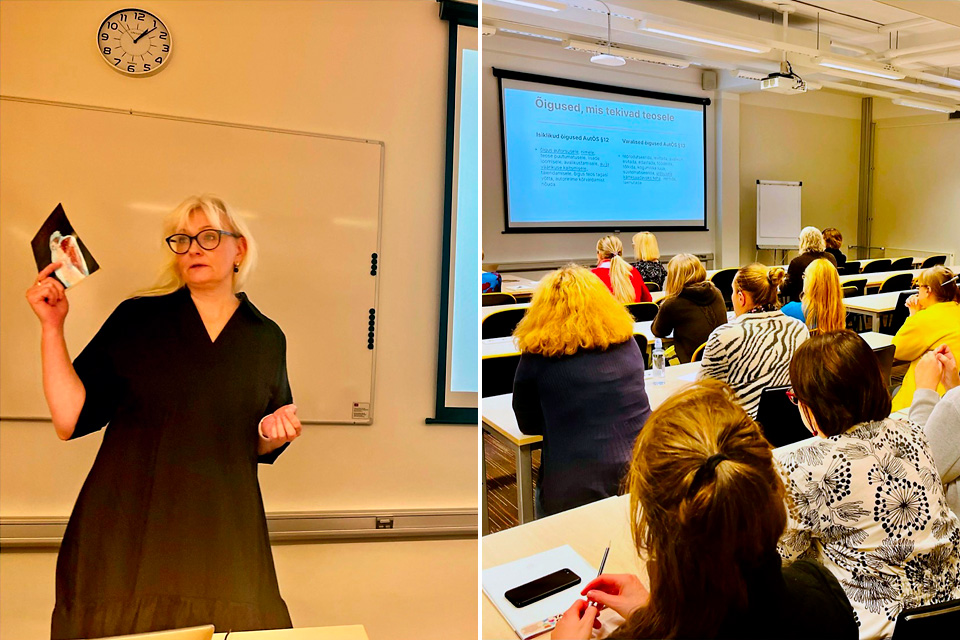Estonian National Copyright Workshops: Empowering Understanding of Intellectual Property

Two informative seminars on copyright were held at the Tartu Public Library on May 31 and at the University of Tartu Library on October 11, 2023. Both events were a significant step toward enhancing awareness and knowledge among librarians on the complexities and practical applications of copyright, aiding them in applying these principles effectively in their respective professional domains.
Legal insecurity is the strongest “innovation barrier” for making available 20th and 21st century cultural heritage. The vast majority of library staff feels very uncertain when clearing rights. Therefore, the EODOPEN Working Group 5 aims at capacity building of library staff in terms of rights clearance and has planned to organize national workshops in every project country.
In Estonia, copyright workshops were initiated by the National Library of Estonia and were held in Tartu. Librarians from the Tartu Public Library and the University of Tartu Library explored the world of Intellectual Property and Copyright, including the concept of works, what copyright law protects and what it does not, as well as moral rights and economic rights in different cases.
Events resumed with a dedicated internal training session, which was aimed at fostering a deeper understanding of the practical application of copyright. Led by mag.iur Airi-Ulrike Lillevälja, a leading copyright specialist from the Estonian National Library, the session delved into exercising copyright independently or through collective representation organizations. The discussion further extended to the realm of Creative Commons (CC), on how the rights owners share their creative work freely in a standardized way. Additionally, the participants discussed the Rights Statements – rights statements that can be used by cultural heritage institutions to communicate the copyright and re-use status of digital objects to the public (rightstatements.org). Furthermore, the workshops focused on orphan works, out-of-commerce works, and exceptions allowing access for individuals with visual impairments, while providing insight into the pivotal EODOPEN project aiming to enhance access to various works.
Around 80 library specialists attended both events, highlighting their importance within the domain of copyright and intellectual property. These collective gatherings of librarians from the two Tartu libraries amplified the importance of understanding and applying copyright principles effectively within their professional capacities. This impressive participation indicates a substantial interest and need for developing expertise and skills in navigating copyright matters among the library community in Estonia.
November 6, 2023